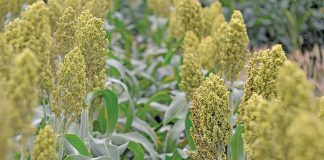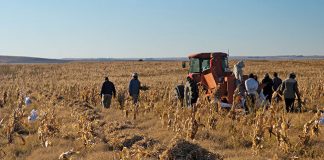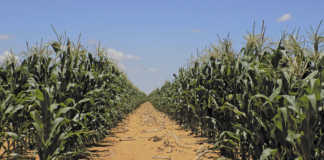
While all entrepreneurs face price and other business risks, farmers face the additional risk of uncertain yields.
Newly hatched agricultural economists are often surprised to learn the extent to which climate and other variables govern production and profit.
Unrelated events frequently have a major impact on farmers. A good example of
this is the effect the recent listeriosis outbreak has had on South Africa’s pork producers.
Despite having stringent biosecurity systems in place, these farmers are suffering due to the current public perception of pork after cold meats such as polony and ham were recalled due to the outbreak.
Farmers worldwide have to manage these risks. South African farmers, however, differ from those in developed countries, who have the complete support of their governments in case of disaster.
In South Africa, potential disaster management systems have been discussed for years without any real progress.
Security of land tenure is another risk.
The hope that a new president would provide some security in this regard was dashed when President Cyril Ramaphosa announced that government would investigate ways of expropriating land without compensation in his State of the Nation Address.
Biological farming
‘Sustainability’ has become one of the buzzwords of modern times.
Media hype, largely driven by retail chains, has resulted in a rosy picture of happy cows on pastures and lambs frolicking on the hills, with no mention of how that steak or chop arrives on the consumer’s plate.
Minimum tillage is one part of the concept of biological farming, or, as ZZ2 calls it, ‘natural farming’.
This is nothing new: prominent farming enterprises such as ZZ2 have been practising it for years.
Biological farming methods make economic sense. Farmers who use fewer chemicals and more natural fertiliser regularly report higher crop yields than those who rely solely on chemicals.
Minimum tillage also saves on fuel. As the experts point out, it is also important to increase the carbon content of the soil.
Most farmers today realise that soil is a living organism that needs more than NPK to remain healthy.
But sustainability involves much more than simply looking after the environment. The basis of sustainable farming is profitability.
If farmers cannot earn enough money to pay their living expenses, they will have no money to spend on caring for the environment.
Put another way, farmers can, and many do, farm in as environmentally friendly a way as possible, provided they can do it profitably.
Telling farmers they should farm indigenous breeds, not remove any hay from lands or, if they do, bale the hay then feed it to their animals on the specific lands, does not contribute to profitability or efficiency.
Irrigation farmers can use cover crops and minimum tillage and limit insecticides only if they use genetically-modified (GM) seed.
Retail chains that advertise or promote only non-GM products do not contribute to environmental protection.
Do your homework
While the current interest in ‘revival agriculture’ is a positive trend, farmers should not apply the advice given by its well-paid promoters without proper evaluation of the short-term effect on farm profitability.
Can you really afford to plant a low-yielding cover crop instead of a high-yielding grain crop?
Can your cash flow withstand the changeover to an indigenous breed with limited market potential and lower production than the higher yielding breed you currently have?
The first goal of a farmer remains to farm profitably.
If any approach or technique does not add to long-term farm profitability, it should not be implemented.
Dr Koos Coetzee is an agricultural economist at the MPO. All opinions expressed are his own and do not reflect MPO policy.
Email him at [email protected]. Subject line: Global Farming.











